Anti-Roma riots erupted in Bulgaria last month, following a death linked to an alleged Roma crime boss. In an email interview, Martin Kovats, a special adviser to the European Commission on Roma issues, discussed the European Union’s Roma policy. WPR: What are the main areas of concern regarding the Roma in Europe, from the perspective of both human rights advocates and national governments? Martin Kovats: For human rights advocates, the persistence of disadvantage among and discrimination against the Roma raises questions about the utility of rights to deliver social change. National governments have a range of perspectives, as the political […]
Latest Archive
Free Newsletter
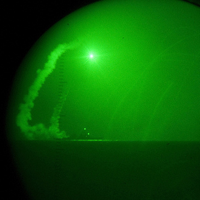
The battle to define the lessons of the Western intervention in Libya began almost as soon as the first Tomahawk missiles started hitting that country’s air defense network back in March. Many of the arguments have focused on the viability of the “Responsibility to Protect” doctrine of international humanitarian intervention and how it might apply to such countries as Bahrain or Syria. However, defense analysts also subjected the military character of the campaign to scrutiny, with some now suggesting the fight in Libya indicates that airpower has finally fulfilled its decisive promise, having matured to the extent that it can […]
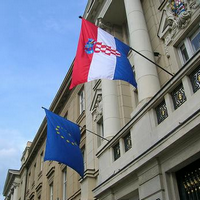
Editor’s note: This is the first in a two-part series examining the European Union’s approach toward the integration of the Balkans into the union. Part I examines the record of EU integration to date. Part II will examine the road ahead. The European Commission’s (EC) recent progress reports on the Western Balkan countries, released in October, mark the latest stage in a long process designed to bring a region devastated by post-Communist conflict into the European fold. The European Union’s influence on the Balkans over the past decade has certainly been positive, drawing the countries away from armed conflict and […]
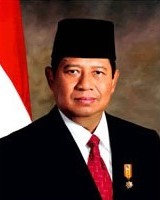
Under President Susilo Bambang Yudhoyono, Indonesia has emerged as a success story in many ways. It has waged a resilient campaign against terrorism, achieved the third-highest economic growth rate among G-20 countries and demonstrated dynamic leadership within the Association of Southeast Asian Nations (ASEAN). Moreover, this political and economic stability has been achieved in a context of deepening democratic consolidation, after a period of suppression of political rights and civil liberties during the Suharto era. But Yudhoyono’s tenure has also seen the rise of radical Islam, which some view as the greatest threat to Indonesian democracy. Groups such as the […]
A recent wave of economic prosperity in Argentina may have swept incumbent President Cristina Kirchner to a second term last weekend. But with the election now past, some observers are questioning how long Kirchner can maintain subsidy-heavy policies supporting her nation’s growth and, more importantly, how long she can hold onto the positive public opinion that has accompanied that growth. Argentina’s economic success of recent years, says Karen Hooper, a Latin America analyst with the private intelligence company STRATFOR, “has been strong because of strong stimulus policies from the government.” Such policies center largely on subsidies for energy and food, […]
Last month, South Africa unveiled the first-ever military plane to be designed and produced by an African country. In an email interview, John Dunne a specialist in defense economics at the Bristol Business School, discussed South Africa’s arms industry. WPR: What is the recent trajectory and current state of South Africa’s domestic arms industry? John Dunne: South Africa’s arms industry has been through considerable change since the end of apartheid rule. After serving as a comprehensive system supporting the apartheid state, it was allowed to decline under the post-apartheid government, with the state procurement and production entity Armscor being split […]

Turkey’s ongoing military operation on both sides of its border with Iraq highlights the recurring problem confronting the Turkish government and military in their fight against Kurdish terrorists: The insurgents’ area of operations, like the Kurdish population itself, straddles Turkey’s borders with Iraq, Iran and Syria. The governments of all four countries share an interest in suppressing Kurdish separatism and violence, but each has at times also found Kurdish terrorism to be a useful tool to pressure the others. This transnational component to the problem means that the current Turkish military operation, which followed coordinated attacks by the Kurdistan Workers’ […]
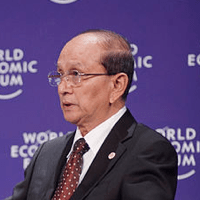
Recently, authorities in Myanmar have made a series of moves that some observers have interpreted as signaling a new course under the government of President Thein Sein, elected in March. Prominent among these shifts are the suspension of the Chinese-sponsored Myitsone dam project on the Irrawaddy River and an amnesty that has freed more than 6,000 prisoners, including at least 200 political prisoners. Yet, with these moves, the government seems to be searching more for ways to ease China’s political and economic influence in the country than for avenues of democratic reform. On Sept. 30, Thein Sein announced in parliament […]
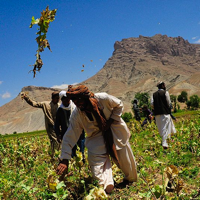
Since 2001, Afghanistan has become synonymous with the term “narcostate” and the associated spread of crime and illegality. Though the Afghan drug economy peaked in 2007 and 2008, cultivation this year still amounted to 325,000 acres, and the potential production of opium reached 6,400 tons (.pdf). Narcotics production and counternarcotics policies in Afghanistan are of critical importance not only for drug control there and worldwide, but also for the security, reconstruction and rule of law efforts in Afghanistan. Unfortunately, many of the counternarcotics policies adopted during most of the past decade not only failed to reduce the size and scope […]
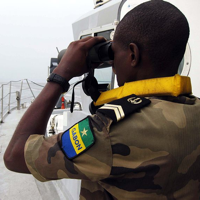
West Africa is rapidly becoming a major player in the global trade in illegal drugs and a central focus of the efforts to control it. Escalating arrests of West African drug traffickers at foreign airports, container shipments of cocaine seized off the West African coast and the collapse of entire African states under pressure from global drug cartels are some of the images used by international drug-control experts and the media to illustrate West Africa’s growing role in the trade in heroin and cocaine during the past decade. International experts claim that after having played an insignificant role in the […]
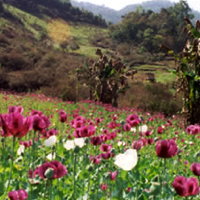
From the early 1950s until 1990, when Afghanistan’s opium production surpassed that of Myanmar, most of the world’s illicit opium originated in mainland Southeast Asia. This is partly because the region’s rugged hills and mountains, heavy monsoon rains and lack of transport infrastructure have long protected rebel armies and illegal opium poppy cultivation from the writ of central governments and anti-drug agencies. Myanmar’s turbulent political history and internal wars since its independence in 1948 also contributed significantly to Asia’s long reign as the global leader in illicit opium production, as the opium economy and the war economy clearly nurtured one […]
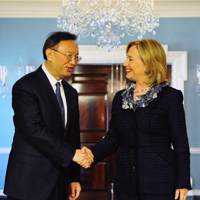
As part of a “big think” forecast project commissioned by an intelligence community sponsor, I’ve begun to think about the future geography of global security. As often with this kind of project, I find myself falling into list-making mode as I contemplate slides for the brief. So here are nine big structural issues that I think any such presentation must include – Regional integration in East Asia depends on an American security presence. Virtually every country in East Asia is realistically planning for eventual absorption into a regional economic scheme structured around behemoth China, while quietly scheming to balance that […]

The Currency Exchange Rate Oversight Reform Act, approved in the U.S. Senate last week by a majority of 63 to 35, risks damaging U.S.-China relations and further eroding Washington’s economic standing in the international community, and all for very little reward. The bill calls for retaliatory trade measures against countries that maintain an undervalued currency, and while it does not mention China by name, the United States’ largest trading partner is clearly its main target. The Chinese yuan is without doubt undervalued, but this is only one of a number of factors contributing to the U.S. trade deficit. Moreover, at […]
Amitav Acharya is one of the sharpest and best-informed analysts on Southeast and East Asia out there. We had the pleasure of including an article by him in our Regional Integration in Asia feature issue last year. He’s written a typically thoughtful op-ed on Southeast Asia’s U.S.-China dilemma that I recommend as a companion piece to Hillary Clinton’s article in Foreign Policy last week. Anyone following the region will be familiar with the broad strokes of what Acharya’s dealing with: Southeast and East Asia need to hitch their economic wagons to China’s rise, but they can’t feel comfortable doing so […]
Thousands staged demonstrations against the power of banks and for greater democracy in German cities on Saturday, while several thousand Spanish teachers and parents marched in the capital Madrid to protest against austerity measures. This report by the Russian government-owned Russia Today examines the protests.
Paraguay deployed troops into its northern provinces earlier this month in an attempt to contain an outbreak of guerrilla attacks. In an email interview, David Spencer, a professor at the Center for Hemispheric Defense Studies at National Defense University, discussed Paraguay’s guerrillas. WPR: What is the background of the guerrilla movements in Paraguay? David Spencer: There is currently one group of guerrillas active in Paraguay, the Paraguayan Popular Army (EPP). The movement began in the historically neglected area around Concepcion in 1990, shortly after the fall of the Alfredo Stroessner government. Leftist opposition groups supporting land reform on behalf of […]
